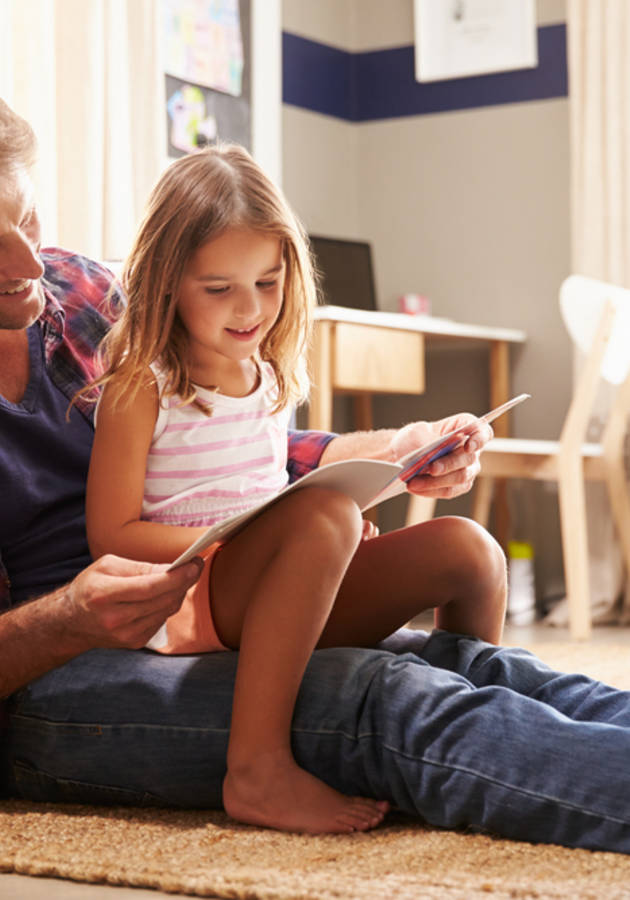By now, you’ve certainly heard the annual reports about the peak levels of personal happiness reported by people living in the Scandinavian countries of Norway, Sweden, Finland, and Denmark. The last of these countries, in particular, continues to receive a great deal of attention due to its ability to culturally produce generation after generation of confident and capable citizens. One might begin to suspect that there’s a secret to it all, and in The Danish Way of Parenting, authors Jessica Joelle Alexander and Iben Sandahl take you behind the curtain to provide you an exceptionally reliable framework for child-rearing.
The Danish Way of Parenting offers a new perspective on numerous topics that have long been passed over or under-addressed by American-based parenting guides. These topics are organized around their memorable P.A.R.E.N.T. acronym, so that readers can’t forget the importance of it, for example, play, authenticity, and togetherness in a child’s development. Taken together, Alexander and Sandahl’s work in this book amounts to a fresh, uplifting view on parenting that is sure to hit home with soon-be-parents and current parents who want to focus on positivity.
“Am I doing this right?”
As you jump into the introduction of this book, you’ll quickly find that authors Jessica Joelle Alexander and Iben Sandahl are very cognizant of the position they’re writing from. They immediately address why, as the title suggests, Danish people and their children are so markedly happy. More importantly, they quickly clear the air by clarifying that their work in this field is not designed to disparage American parenting styles, but rather to provide an alternative option that views the world through “Danish lenses.”
Anyways, let’s get right down to business by addressing that paramount question that dwells inside every parent’s head – “Am I doing this right?” It is easy to recognize the importance of this question immediately. But also note that the answer is relative and, generally speaking, colored by cultural norms. With this in mind, Alexander and Sandahl begin to push ahead to question if there is a better, less stressful system of parenting available to American parents.
At the same time, though, the issue at hand is not one nation’s parenting norms versus another’s, but rather a matter of relying upon so-called “default settings.” You’ll be unsurprised to learn that many of these “settings” are “installed” in us by our parents, for better or for worse. The conclusion is clear - parents like you who have felt the need or the desire to break from these defaults have an opportunity placed before them now, in the form of the authors’ Danish parenting philosophy, P.A.R.E.N.T.
Serious learning through play
After setting the scene and explaining the context for their work, Alexander and Sandahl begin to explain their views in earnest. To do this, they’ve broken down their findings into six distinct sections; the first being focused on “play.” More specifically, they believe that “play” is a serious matter in the lives of children and that most parents are not currently allowing their children to have enough unstructured playtime.
This claim is backed up by bringing in historical examples from Danish culture, where unstructured free play time has long been part of both the formal and informal education system. In fact, you may be surprised to learn that the Danish parents that contributed to the writing of this book all agreed that the “American” method of gearing most of a child’s free time toward goals and awards is odd at best and counterintuitive at worst.
While it may require some adjustment on your part as a parent, it is clear that the benefits of freeing up more unstructured playtime are numerous. Using established psychological theory, the authors explain that this kind of play can better center a child’s “locus of control” on themselves while also allowing them to foster the kind of emotional resilience needed to be self-regulating later in life. Better yet, it demonstrates that free form play – such as with the well-known Danish toy Legos – can encourage creative growth and the fostering of cooperative social skills over time.
Authenticity in praise
For some unknown reasons, authenticity is often put to the side and is rarely mentioned in other parenting books. One might argue that it cannot be measured, and hence it is neglected. The truth is, authenticity shows up in myriad ways throughout a child’s early development period and influences their understanding of the world around them. Because the world is intrinsically linked to you, parents should be willing to remain in touch with their own emotions and allow their children to foster the skills necessary to do the same. This is what living and parenting authentically look like.
“Emotional health” lies at the heart of the discourse, not least because the authors believe an emotionally healthy child (or parent, for that matter) will be able to better navigate the world around them if they are able to deal with both positive and negative emotions productively. Furthermore, this need for authenticity extends in both directions and allows you, as a parent, to hear your child’s true desires rather than projecting your own or others’ goals onto their seemingly blank canvas.
Nestled in the heart of this section, you’ll also find a truly revealing bit of discourse on the role authentic praise should play in your child’s development. In general, the Danish value a humble child and, thus, provide their children with praise that is growth-minded (rather than simply congratulatory). When implemented correctly, this type of authentic praise further solidifies a child’s inner strength and allows them to remain resilient as they grow and mature.
As we move toward the conclusion, you’ll find a few examples of what authentic praise looks and sounds like. The quotes are primarily focused on the effort put forth by their exemplar child and demonstrates an age-appropriate communication of the exemplar parent’s appreciation for their child’s work. Further down, Alexander and Sandahl’s “Tips for Authenticity” can help you further compare your current or prospective child-oriented interactions against an established standard of authenticity.
Reframing to gain resilience
“Reframing” can also be key, with its presence felt in the practices of authenticity and empathy, respectively. This refers to the active practice of reframing a stressful family situation and trying to find at least some worthwhile positive outcomes from it (especially if it can help your child grow in one way or another).
While we can go into some detail about how reframing can benefit you, as a parent and as a person, it has an important impact on children as well. To this end, if you can apply a reframing mindset often, you will be less likely to “label” your children one way or the other. In turn, this can help the child’s interpersonal development, as they will be less likely to limit their potential caused by the exceptional influence your spoken and unspoken views hold over their self-esteem.
Empathy as a fuel
The fourth element of Danish parenting is empathy. Here, the authors do directly call out American culture – with its “survival of the fittest” mentality - as being (at least in part) a cause of growing narcissism among American children. Staying on this warpath is not very productive either, and you need to move on toward more tangible methods. The authors assert that a concerted effort towards exhibiting and practicing empathy could mitigate the “fear of vulnerability” that drives children to become emotionally detached from those around them.
Alexander and Sandahl believe that this kind of productive empathy could take several forms. For example, if parents could be less judgmental of one another’s parenting practices, then their children would be less likely to exhibit the same kinds of judgmental tendencies while they grow up. Also, overprotective families can affect a child’s ability to empathize, primarily because the parents in these situations do the heavy lifting when it comes to deciding how their children feel about a particular situation or person.
As this chapter rounds out, you’ll find some useful insights into how Danish families teach empathy through a variety of channels, including their particular word choices. You’ll also stumble on more tips that you can immediately put into action to evaluate your parenting style, with the focus of the tips being the best ways to facilitate empathy in yourself and your children.
Saying “no” to ultimatums
Whether you are a first-time parent or already have a child of your own, you undoubtedly know how prevalent ultimatums are in American parenting. You have also probably heard, used, or been on the receiving end of phrases like “You’d better do that right now or else!” While they are not entirely dismissive of this kind of parent-child interaction, this type of parenting is rarely utilized in Danish culture (including their schools).
To put it succinctly, the Danish culture emphasizes parenting from a perspective of respect. More specifically, Danish parents see their children as intrinsically “good” rather than acting “good” as an exception to general naughtiness. Though not perfect, the authors believe that this type of mental starting point can broadly avoid the kind of power struggles that typically make American parents pull their hair out.
Also, you’ll find that Alexander and Sandahl come down hard on the practice of spanking, regardless of the circumstances. They draw on a variety of recent psychological studies that found spanking to not only be ineffective as a behavior modifier but also potentially damaging to the long-term development of a child’s self-worth. Spanking was made illegal in Denmark in 1997 and yet, the nation’s children still manage to grow and thrive into prosperous adults without its threat hanging over their early years.
Togetherness, as a way of life
Finally, in this book’s last chapter, you’ll discover that the final ingredient needed to pull all of Alexander and Sandahl’s Danish parenting beliefs together is “togetherness.” In fact, the Danes even have a special word for this concept, hygge (meaning “to cozy around together.”) This word and its implications go beyond physical comfort with one’s environment; in fact, it is believed that this concept extends into the psychological realms as well.
The harsh individualism exhibited by Americans clashes with how hygge functions in Danish culture and the benefits of it. Sadly, someone needs to tell us that we must put aside the “I” when we are around our family and friends in order to facilitate a more cohesive “we.” Nonetheless, this “togetherness” principle also extends to non-related “families,” such as those formed between new mothers and their midwives.
Before we drop the anchor on the concept of “togetherness,” let’s explore a few more tips that could introduce hygge into your life. First of all, you need to “be in the moment together” and “take a break from complaining.” This is by far the single most effective hint in bringing genuine and actionable hygge into your house and around your loved ones. People often forget that wasting your time complaining actually solves nothing.
Final Notes
So, is the Danish way of parenting worth the effort? Authors Jessica Joelle Alexander and Iben Sandahl certainly believe so, and after reading their book, you will almost certainly be inclined to agree. Their ability to respectfully compare American parenting and Danish parenting throughout the book allows their message of improving inter-familial relations to hit home. The book also provides insights that expectant parents and current parents alike can use to better shape their day-to-day child-centric interactions towards continuous emotional growth.
In short, The Danish Way of Parenting is worth picking up and reading from cover to cover. While it may take some time to get off your “default setting” and embrace its teachings, you are sure to find that this book changes your outlook on raising your child for the better.
12 Min Tip
If you’re authentic and honest with your own emotions, you’ll be better able to foster the same kind of emotional health in your children. You can also foster direct emotional authenticity in your children by responding with more than praise and encouraging them to stop comparing themselves to others.





























